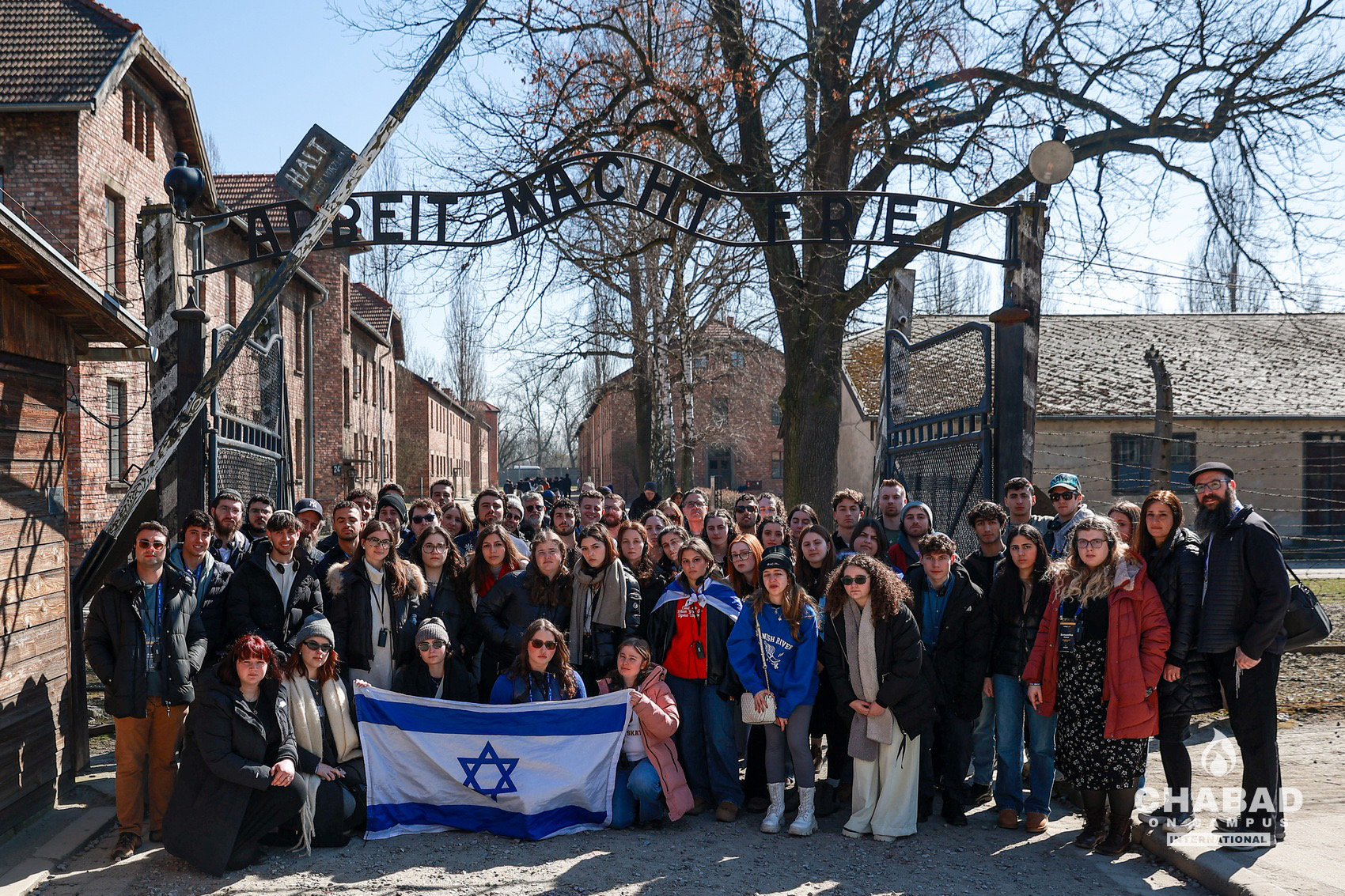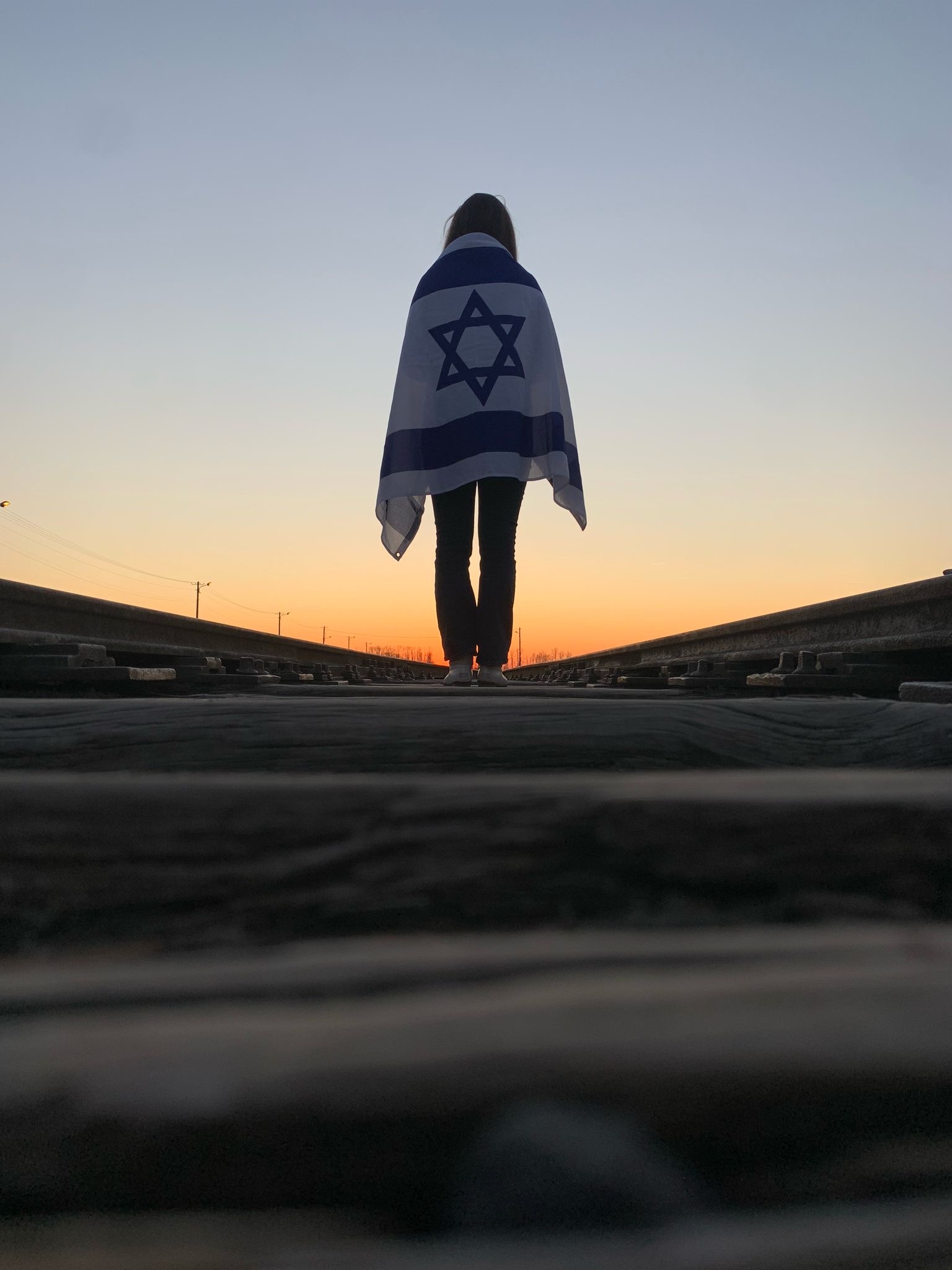It was a dark and quiet evening; we walked into a forest where we were confronted with a large grave. The grave contained 801 children who were brutally murdered for one reason and one reason only – they were Jewish.
Standing there, I was told the story of a mother who gave up her baby before being killed. She wrote a letter to the child about her history and the pride her parents felt so when her daughter grew up, she would know her mother.
Shortly after, I was presented with a letter. It was a letter from my own parents that told me about my history and their pride in me. I broke down and couldn’t stop crying – in the grave were innocent children who were faced with the crime of being Jewish, not too far from my age, helpless in the horrors of a genocide.
Five of my eight great-grandparents were murdered in the Holocaust. My grandmother survived by hiding during Soviet blockades, but her first child — my aunt — tragically died of starvation as a baby. My grandfather fought for the Soviets and lost an arm due to a Nazi shooting him. In 1990, even my parents had to flee the Soviet Union after neighbors warned them of looming pogroms, offering to take in my sisters if anything happened to them.
These thoughts and feelings occurred over spring break, when I had the opportunity to go to Poland through a Chabad on Campus trip called Living Links. This trip hit home deeply. I visited Auschwitz-Birkenau, Majdanek, Sobibor and the Children’s Forest. Seeing the ashes of more than 200,000 innocent Jewish souls in a pile, the remnants of lives stolen — shoes, bags, memories — I was confronted with the unimaginable horror our ancestors endured. I was bundled up with several layers of clothes, a coat, hat, scarf, gloves, 32-below socks and boots, yet I was freezing. I could barely feel my toes, which made me reflect even more about the Holocaust. I had no place to complain or even feel discomfort when our ancestors barely had a light layer of ripped clothes to cover their frail bodies.
Walking around Auschwitz-Birkenau, feeling the brick walls of the barracks and hearing heartbreaking stories of individuals was painful and chilling, but necessary. The most powerful moment was singing “Am Yisrael Chai,” “One Day,” and various other Jewish songs as we were walking out of the concentration camp, heads held high, unlike our ancestors that remained there. Hearing stories of how Jewish people maintained their faith and spirituality in secret, in the face of oppression, served as an inspiration to an impressionable mind like mine that is on its own religious journey.
We walked through former Jewish neighborhoods and synagogues, and I could almost feel the rich traditions, learning and community life that once thrived there. It was a powerful reminder that Jewish life in Poland had the same deep-rooted traditions that we have now. These people were no different than us — they smiled, danced, laughed and lived peaceful lives as proud Jews.
During this trip, my emotions were stirred, as I was filled with anger. Anger that Oct. 7 happened, anger about the rise of antisemitism on campus and around the world, but more importantly, anger that this systemic hate against my people has shaped who I am, my passions and my life. I started Students Supporting Israel at KU and was the president during Oct. 7. Since then, I have been fighting against antisemitism and standing up for Jews on my campus. This trip showed me the uttermost importance of the existence of Israel, a place where Jews can call a home post-Holocaust.
This powerful experience reaffirmed that nothing should ever be compared to the Holocaust, and the word genocide should never be used lightly. When you stand in the very places where it happened, the weight of history becomes undeniable.
I feel numb. I feel heartbroken. I feel forever changed. But more than anything, I feel the responsibility to remember and to bear witness. Never Again! Never Forget! Am Yisrael Chai!
Dori Jezmir is a student at the University of Kansas and former president of its chapter of Students Supporting Israel.

The cohort of Chabad on Campus’ 2025 Living Links trip.
